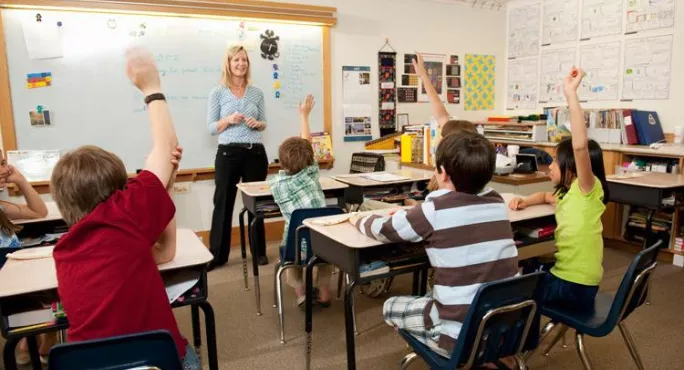The DfE is planning an overhaul of the school improvement system that would create hubs responsible for hundreds of schools, Tes can reveal.
The move follows a pledge in the department’s teacher recruitment and retention strategy to launch a “wholesale review of the role of teaching schools and our existing system leadership designations”.
Since 2011, teaching schools have played a key role in the DfE’s approach to school improvement, acting as “centres of excellence” that deliver initial teacher training, school-to-school support and teacher and leader development in their area.
According to the latest DfE data, there are currently 785 teaching schools, which help schools that are partnered with them in a teaching school alliance (TSA).
Opinion: Teaching schools movement has lost its way
Need to know: New teacher recruitment and retention strategy
Quick read: School improvement jobs slashed by 60 per cent
In 2015-16, TSAs varied in size from one school to 205, although 91 per cent contained 40 schools or less.
DfE research published in 2016 found that pupils in teaching schools did better than those in other similar schools, but there was no noticeable effect of being in a school that was linked to a teaching school as part of a TSA.
Last week, the DfE held Skype conference calls with existing teaching schools.
According to people on the calls, the department outlined plans to move to a hub model of TSAs, with each hub responsible for 200-300 schools.
The teaching schools were told each hub would receive £200,000, be linked to a research school, and be responsible for continuing professional development, initial teacher training and school-to-school support.
A DfE procurement notice, which closed on Friday, says the department plans to pilot the model in “up to seven areas of the country”.
Participants in the Skype calls told Tes that a list of schools that are eligible to apply for the pilot will be sent out later this month, and will include some that are not currently teaching schools.
One teaching school leader who took part in a Skype call told Tes he had concerns about the hubs having so many schools, saying: “That’s where it becomes nigh on impossible.”
He also questioned the funding, adding: “You get £200,000 but that’s just going to get wiped out immediately because you are going to have to create a whole infrastructure in staff and then carry that, and you are only going to be able to do that if you bring in a proper network as well.”
He thought the DfE was was trying to save money, and said his impression from the Skype call was that the DfE wanted to “filter out” teaching schools it did not think were performing well enough.
Richard Gill, chair of the Teaching Schools Council (TSC), told Tes the organisation was “supportive of the proposal to test and learn a new approach to the existing system leadership infrastructure”.
He added: “The TSC continues to engage with the department as to the finer detail of the proposals. We are keen to build on the many excellent examples of collaborative approaches that already exist across the eight regions.”
A DfE spokesperson said: “We are in the process of considering reforms to schools to ensure they deliver effectively for those that require support, as part of continuous improvement and building on the successes to date.
“More information on our proposal to test reforms will be available in due course.”




